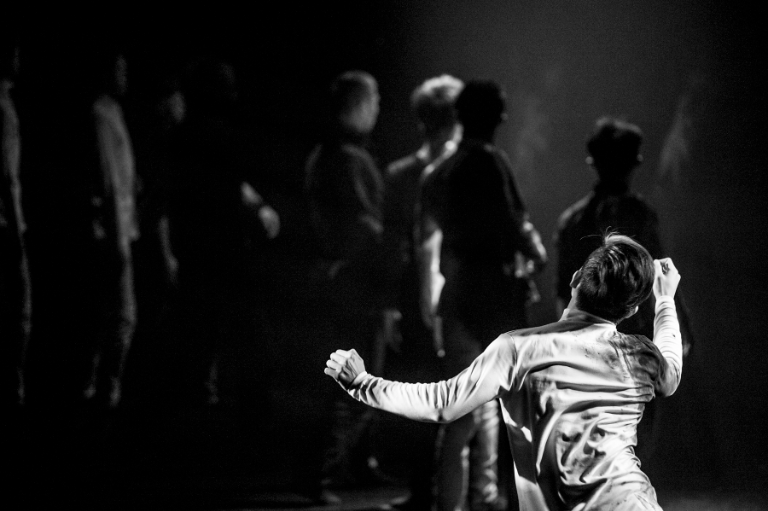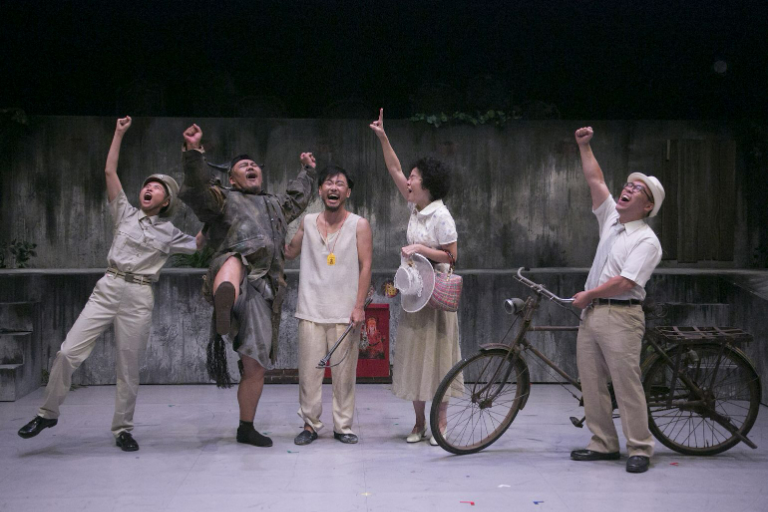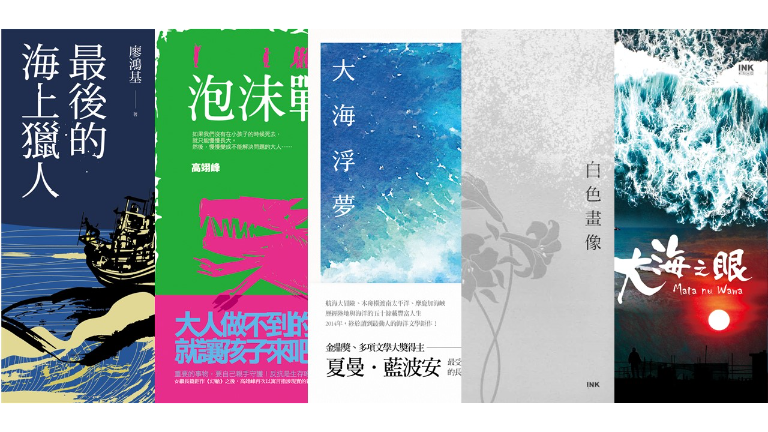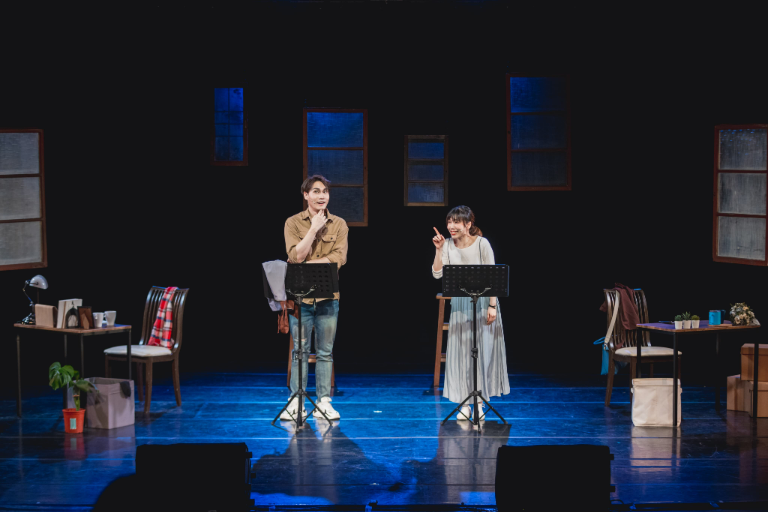Launched in 2008, the Young Star New Vision in Performing Arts program has reached its tenth year after a progressive development journey. At this milestone, 12 "young stars1 " who have been part of the program were invited to look back at their participation experience and examine whether this experience has had any effect on their subsequent creative careers.
Compared to their early days after graduation2, they have now gradually evolved from "emerging" to "established" artists, and from being mere recipients of resources, they have begun to learn to mentor and share resources with the younger. Compared with the newcomer stage, they now have to bear more responsibilities, or what they call "baggage", nowadays.
In the interviews, almost everyone remembered the simplicity and purity of those times. But in the good old days, these young stars also had worries hanging in their minds. Standing at the verge of "joining the workforce" and facing the harsh facts that come with it, most concerns still centered on their livelihood or career choices.
"If you hadn't participated in Young Star New Vision, would you still have pursued a creative career?"
Faced with this difficult hypothetical question, several people hesitated for a while before giving out answers similar to those of Ming-Hwa Yeh (Dance, 2009, 20103): "I'm not really sure. It's actually pretty difficult."
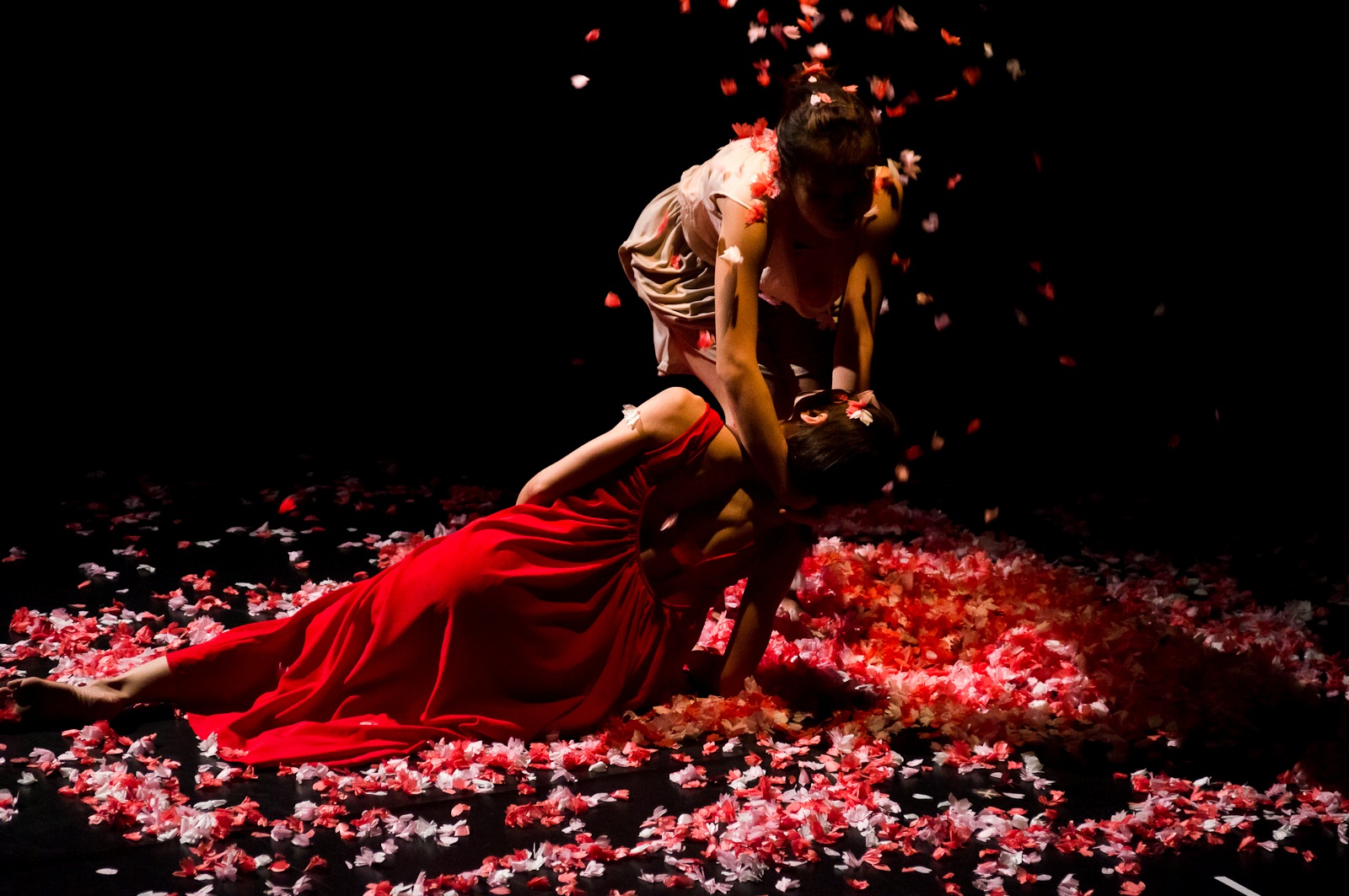
Flake, work by Ming-Hwa Yeh, winner of the 3rd Young Star New Vision in 2010
The "Debut" Announcement of Prospective Creators
(I) Career Exploration: Leave or Stay and Make Art?
"There must be people who can grit their teeth and hold on, but with my living conditions there was no way. I know I was lucky to get on that boat." Before that, she threw all her energy into the dream of becoming a professional dancer and went to Europe and the United States to test the waters, but in the end, she didn't get the desired result. Unable to dance the dance she wanted, she decided to start making it up herself. With the support of Young Star New Vision, she completed her first solo creation, and equipped with positive dance reviews, she moved on to international platforms such as the Venice Biennale's International Festival of Contemporary Dance, which provided a long-lasting momentum for her subsequent creations. "It was really an important starting point for me."
The answer that Jui-Ming Chiang (Theater, 2009, 2010, 2012) gave was surprisingly straightforward: "No." He was selected as a Young Star New Vision finalist for three years and nicknamed "Outstanding Senior" by "young stars" from later editions. It was because he was shortlisted that he decided to leave his relatively comfortable non-theater related job in the UK and return to Taiwan. "It was a time when I had to decide what kind of life I wanted to lead and, because I passed the audition, I decided to do what I wanted to do."
Vera Chen (Theater, 2008, 2009, 2010), who also returned to Taiwan from the UK, had just finished her MFA in solo performance and came back with a strong desire to make art. "I really wanted to find a place to do it, but no one knew me and I didn't know which group to work with." For her, the most important assistance that Young Star New Vision gave her was "visibility". "Without such a channel, maybe I would have had to spend a lot more of time trying to get people to know my work. I didn't expect that creating a work here would have such a great ripple effect and offer me the opportunity to tour internationally and broaden my horizon. The effect also seems to have stretched on for quite a while."
As Vera Chen once revealed, "If it weren't for this program, I would still be teaching English in a cram school"; Shih-Ying Chen (Theater, 2011, 2013) also wrote in her creator's bio back then: "After finishing graduate school, the strain of going back and forth between real life and theater made me want to give up the idea of directing several times." Despite this, she finally submitted her application proposal. What gave her a boost was the experience of her theater peers with the program in previous years. "I saw that this platform allowed people to do their creative work with peace of mind and freedom, so I felt quite eager to give it a try. In addition, it is aimed at newcomers within five years of graduation. This experience also made me feel that it has the power to motivate you to seize the day and participate within the stipulated deadline."
What Shih-Ying Chen found incredible was that "debut" is usually a term used only in the acting industry and she never thought that she would experience the magical moment of making her first public appearance in theater through a platform like Young Star New Vision. Chieh-Hua Hsieh (Dance, 2008, 2009), who is quite successful in technology performance nowadays, also feels great about this "debut". "That is a statement: this artist has gotten down to work."

Mountain Language, work by Shih-Ying Chen, winner of the 6th Young Star New Vision in 2013
(II) Career Exploration: the Proliferation of Theater Roles
It was only through this platform that Chieh-Hua Hsieh, who was working as administration staff at an arts foundation at the time, began to show others that he also has a creative side.
The effect of this "statement" was also reflected in the cases of Ming-Hwa Yeh, Nai-Hsuan Yang (Dance, 2008, 2009, 2013), Yu-Ju Lin (Dance, 2010, 2011, 2013), and Wei-Yao Hung (Theater, 2015). Before this, they were previously known as dancers/actors, but via the recognition gained through this platform, they added on the role of creator to their identity and many possibilities opened up as a result.
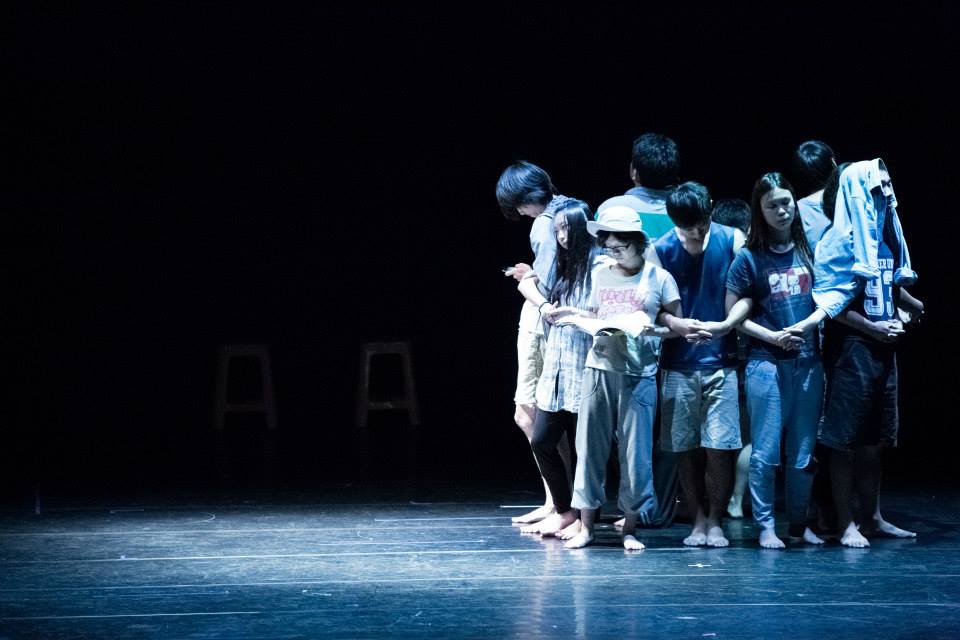
Dear All, work by Ming-Chen Lee, winner of the 6th Young Star New Vision in 2013, selected as one of the top five works of the 12th Taishin Arts Award
Having worked towards becoming a professional dancer since she was a child, Yu-Ju Lin admitted that she first applied to the project grant because she wanted to find a place to dance, which then launched her on a new path. In retrospect, she believes that being a qualified creator gave her more opportunities for arts residencies and international exchanges than simply being a dancer (such institutions rarely accept "pure" performers). In turn, it allowed her to gradually figure out a path in dance that suits her through these extended effects.
Also diverging from the path of a professional performer is Yu-Wen Hung (Music, 2013). Having attended a music program since she was a child and majoring in percussion, her training background in musical performance (with emphasis on following the style of the era or the style of her teachers) did not leave much room for creativity. As someone who enjoyed watching performances, while studying in France, she experienced the combination of music, theater, and dance, which sparked the idea of cross-disciplinary creation. After returning to Taiwan, she did not choose to make her debut by holding a solo recital on the platform Young Star Series organized by the National Theater and Concert Hall, which young musicians in Taiwan often opt to, but instead joined Young Star New Vision, which is relatively unfamiliar to the music scene, to explore the creative possibilities of music theater.
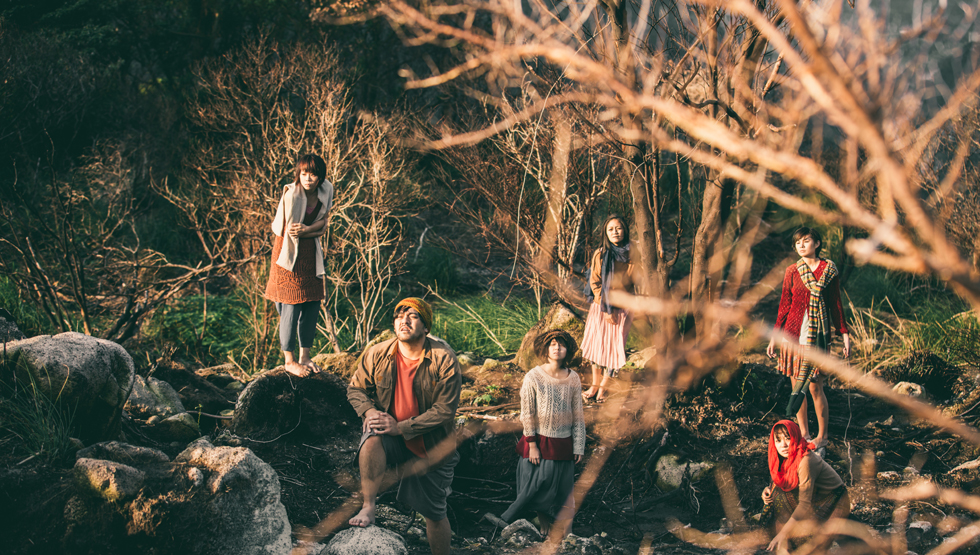
Tiny Kingdom, work by Chen-Wei Hsu, winner of the 8th Young Star New Vision in 2015; through the dancers' competition and body movements, the work attempts to talk about the struggle and repetitive patterns of society, politics and power. (Photographer: Li-Wei Chen)
(III) Seeking Creative Advancement Through a More Formal Stage
Out of the first few years of Young Star New Vision, most of the winners used this platform to explore the possibility of "becoming a creator", just like in career exploration: One type of people looks at whether to stay in the theater or leave for a more financially secure job; the other type expands their role in the theater, for example, from art administrator or performer to creator.
In the later years, there were more and more winners who had clearly demonstrated their creative aspirations before joining the program, such as Ming-Chen Lee (Theater, 2013) and Chen-Wei Hsu (Dance, 2015), who had actively presented themselves through the increasingly mature Taipei Fringe Festival or other newcomer platforms as early as their school days.
They had already released several works before, so why were they still attracted by Young Star New Vision? Ming-Chen Lee described that he was "in the zone" when it came to his art at the time, and his work showcased at the Taipei Fringe Festival the year before received very good reviews. All of these affirmations made him feel that he had to "strike while the iron is hot", so he "actively wanted to do something quickly". In addition, since he had "already done the kind of work at the Taipei Fringe Festival where I needed to find my own way to make everything work out except for the venue that was for free", he was looking forward to "quickly get something going now that I'm out of school, find some possibilities for stuff I wanted to do in school but wasn't able to do" through Young Star New Vision, given that the conditions of the grant were much more favorable.
For Chen-Wei Hsu, who was not successful in his first attempt at applying and had to try again many times, he laughed and said, "Why is it so hard to be selected for Young Star New Vision?" Rather than saying that it was hard for him to be selected, the focus should be on his tenacity to seek out creative opportunities. "At that time, I felt that I was no longer a newcomer, because I had been looking for opportunities to create and showcase my work since a long time ago." From the Next Choreography Project organized by Shu-Yi & Dancers to the Ministry of Culture's My First Show grant, Chen-Wei Hsu had been involved in almost every creative platform for new artists. Although he already had accumulated a lot of creative achievements, Young Star New Vision still made him very nervous at the time because, compared to his previous smaller works, this project provided him with production funds and a scale that he had never experienced before.
Producing a Debut Work
(I) Step-by-Step Professional Production
Vera Chen revealed that before she joined Young Star New Vision, she only knew how to perform and create. "In the course of this project, I realized that there are all these procedures and stages in producing a performance, and that's what I learned the most from in Young Star New Vision." Ming-Hwa Yeh also said: "It has everything you need to make a production, including publicity, ticket sales, technology, advisors, and seasoned professionals to teach you things you didn't know before. Even though everyone was a novice at that time, you were basically given trust, resources, or respect as if you were already completely an adult or a mature creator."
Tung-Yen Chou (Theater, 2008) believes that the platform has always maintained a very well-designed mentorship system and that there is open yet solid accompaniment at the beginning of creation. Wei-Yao Hung likes the fact that he was free to choose a creative mentor that suited him. He invited his chief acting teacher from school, Hua-Chien Hsu, even though his teacher's major was not direction. "What I needed more was someone who understood me." Yu-Ju Lin would prefer for the role of mentor to be broader, not necessarily just a "teacher/guide", but also a "creative companion" of a similar age and philosophy. In her creative experience, the people who have helped her though bottlenecks have often been her creative peers whom she could talk to with ease, even if they were not in the field of dance as her.
(II) The Change of Support Conditions
The first five years of Young Star New Vision, from its launch in 2008 to 2012, were held in collaboration with the National Theater and Concert Hall (NTCH). NCAF was responsible for the front-end selection process and providing funding for planning and production (NT$120,000 per person for the first two years of the program and NT$150,000 from its third year onwards). NTCH assisted in the publicity of the work; provided technical coordination, rehearsal space, and performance facilities and equipment; and arranged the performance schedule at the Experimental Theater. In the later stage (2013 onwards), after NTCH withdrew from the program, the negotiation for a partner venue was carried out on a yearly basis. The program has so far partnered with the Taipei Fringe Festival (2013), Songyan Creative Lab (2014-2016), and the Taiwan Traditional Theatre Center (2017). At first glance, the funding amount seems to have increased significantly to "up to NT$500,000", but in reality, it is because it includes the costs for technical staff and facilities/equipment that arose after the end of partnership with NTCH. At the same time, creators also have to deal with more responsibilities.
Yu-Ju Lin, who has participated in several editions of the program and has experienced both the beginning and later stages, said: "The beginning stage was really nice and comfortable. We were like the senior dancers who work at NTCH. After the separation from NTCH, there was a bit of chaos in the initial period because we only knew how to dance and create. We didn't know how to rent lighting and so on, including the subsequent touring and funding arrangement; we had no experience with these things. When you are faced with time pressure in addition to dealing with stuff you are ignorant about, you get really anxious, but later you realize that these things that confuse you are the most important lessons that make you grow."
Amarcord by Yu-Ju Lin, winner of the 3rd Young Star New Vision in 2010, is a simple and refined dance duo with the two dancers each playing a role, filled with tension and fluidity, leading the audience to follow the psychological changes of the characters.
Many young stars admitted that, after all, NTCH is an iconic venue, not only in the sense of "being in the most prestigious performing arts venue in Taiwan", but also in terms of exposure and ticket sales. Therefore, it was a real disappointment when the project grant was disconnected from NTCH. However, some are optimistic that this means that the choice of venues is becoming more diverse, which may help open up more creative possibilities.
Shih-Ying Chen, who also experienced both stages, mentioned that the period with NTCH was "like a dream. Everything was so ideal; it was the theater life I dreamed of". After the separation from NTCH, she met a very different audience than she had before. Although she "had more to do", her collaboration with the Taipei Fringe Festival that year was surprisingly rewarding—"I've never received so many comments before". She believes that this was probably due to the special mechanism of the Taipei Fringe Festival platform (e.g., Theater-goers Brigade, Fringe Festival Give-a-Like4) and the atmosphere of the audience.
Ming-Chen Lee, who has never experienced the "NTCH treatment", was used to a guerrilla style of rehearsals taking place anywhere and felt very happy just to have a fixed rehearsal space. "For me, I feel it's better, perhaps, to have more things to do by myself for the purpose of Young Star New Vision. If you are producing a show in the real world, you have to find ways to solve many problems by yourself, look for technology, communicate with the designer, and so on. These tasks have to be carried out whether or not you are a mature artist."
(III) The Grand Creative Adventure
"What is most significant is that it gave me my first stage and enough freedom, allowing me to show my creative ideas thoroughly." When Tung-Yen Chou returned to Taiwan from the UK with a MFA in theater and multimedia, it was at a time when Taiwan's theater was developing an interest in multimedia applications, so he received many invitations to participate in theater productions under the title of "projection design", but mostly as support to the main creator. It was not until the emergence of Young Star New Vision that he first had the opportunity to take a leading position and realize his creative vision of visual theater in a more comprehensive manner.
Wei-Yao Hung, who used to participate in theater mainly in the role of actor, realized his dream of directing an all-male play through this platform. Even though he self-deprecatingly said that he was "pretty much just being himself" and "pretty much just messing around", he quickly accumulated a fan base and triggered a sales boom when he upgraded the production the following year.
Nai-Hsuan Yang, who has been selected for the program three times, confessed that she "didn't realize she was a choreographer" during her participation in the program the first two times around. Her narrow mindset of only considering herself a dancer and caring only about whether she danced well or not made her "take a big fall". A few years later, she returned to this stage where she had stumbled with a clear desire for creating sparked by her dance teaching experience. "I kept on thinking about how I could make dance, which I'm so passionate about, easily accessible to non-art students. I chose to assemble street dancers and modern dancers. I wanted to put a language that young people can understand into the piece, so that they could feel what the joy of dancing is all about. This, coupled with Young Star New Vision, which encouraged the touring of the work in central and southern Taiwan, I feel was an excellent opportunity to spread the art."
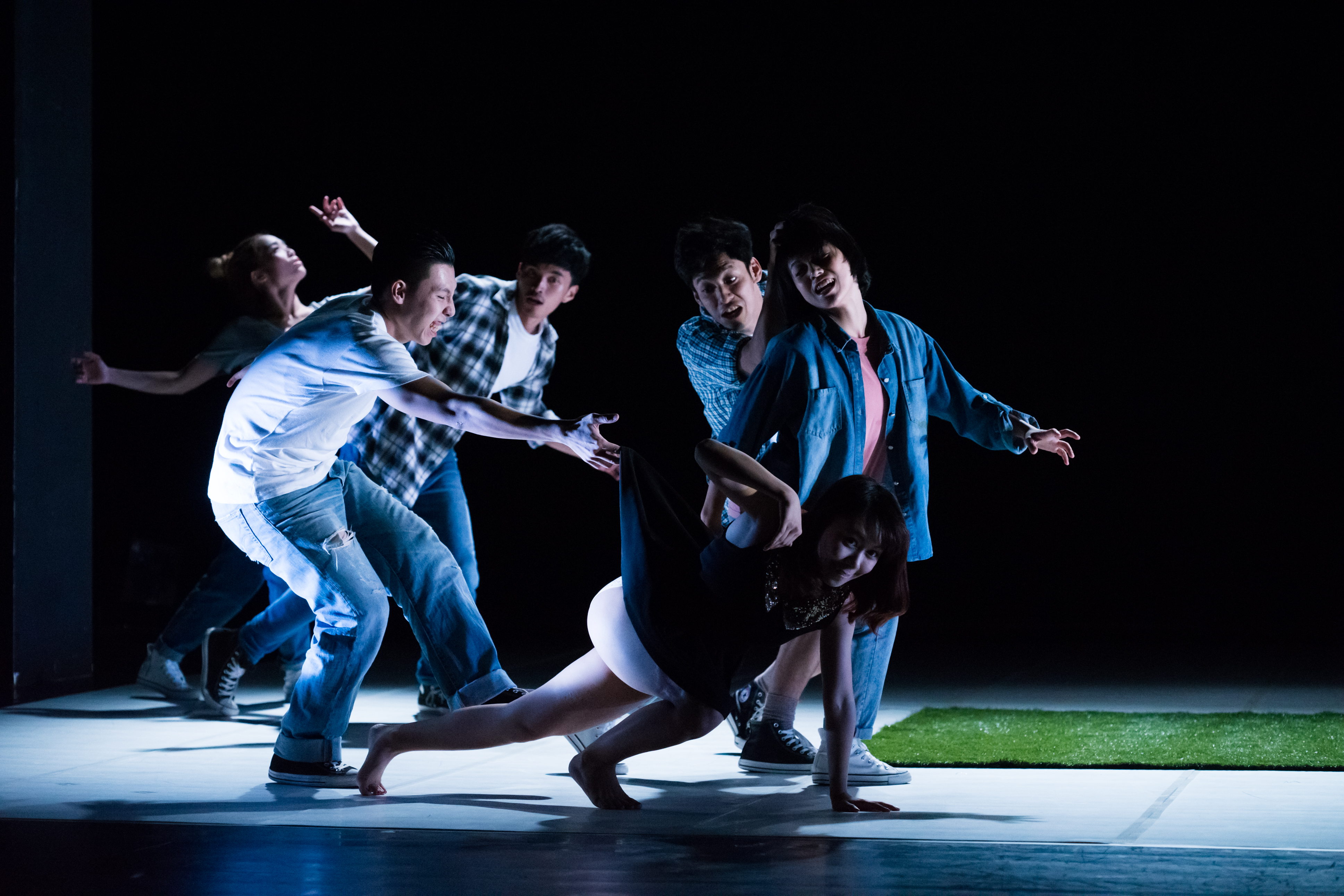
A take-away show, work by Nai-Hsuan Yang, winner of the 6th Young Star New Vision in 2013; the work attempts to combine the rich backgrounds and dance expertise of outstanding physical performers in the fields of street dance and modern dance to create a more experimental theatrical language.
When looking back on their debut, many people felt similar to Chen-Wei Hsu: "Back then, I was like a kid who was looking for a chance to create something and, when I took on a big project, I hurriedly put all my heart into it, hoping to be seen by everyone as soon as possible." Vera Chen, who made a gorgeous debut with a physical theater performance combined with multimedia art, also felt that she had many "wants" at that time, but now she merely wishes to "hold on to the simple core." This kind of self-reflection echoes Hung-Hung's comment on the works for Young Star New Vision: "Due to the lack worries about funding, many creations generally adopt the concept of 'addition', with layers of theater, dance, and video overlapping each other. However, with many inorganic interferences, going out of focus is a common phenomenon. However, the skillful manipulation of the video aspect still shows a different quality of life than the previous generation." 5
As a rare music creator in the program6, Yu-Wen Hung felt very much "out of place" in many aspects when she participated in the program when compared to other theater creators. One of the issues was that music productions have their own special needs, such as the soundproofing of the rehearsal space, the acoustic requirements of the performance venue, and the fact that the musical instruments cannot be considered mere "props" (they cost more to use and transport). Cross-disciplinary collaboration was even more difficult; there were many differences in creation and production processes that needed to be reconciled. "Young Star New Vision is quite theater-oriented in design, which is neither good nor bad, depending on its positioning. In the future, perhaps it can consider a more comprehensive approach, so that the boundaries of each art can be more relaxed." Even though she felt that the finished product was not entirely satisfactory, Yu-Wen Hung gained a lot from this creative experience rife with frustrations: She was seen by theater circles and also became better acquainted with theater, gained a deeper outlook on cross-disciplinary art, and additionally, became friends with fellow young stars of the same year (for example, Ming-Chen Lee made available his own administration team to let her consult on various production issues).
Shih-Ying Chen describes it as a "gentle battlefield". The joint show gathering budding creators of a similar age is not only a test of coordination, but also prompts a sense of competition from mutual encouragement. Yi-Wei Keng, a former program committee member, also observed that Young Star New Vision provides an opportunity for young creators from different fields to observe and get to know each other, and eventually form a new force and new attitude.7
Alliance of Newcomers, Going Down the Path Together
Jui-Ming Chiang used the rather grand term "utopia" to describe Young Star New Vision when he was still a part of it. Now, after so many years away, he still says, "I still think so. The content of the program may have changed dramatically, but the core values remain the same, it gives a chance to actual newcomers. In addition, it is also quite wonderful that although the creator is the main person, a theater production cannot be completed by one person alone and requires assistance of a lot of other people, so it is also a platform for other people. These new creators from different fields find the best relationship with each other by working together again and again, so that when they leave this place, they already have the strength to stand firm on their own."
Joseph Wittje, work by Jui-Ming Chiang, winner of the 5th Young Star New Vision in 2012
There are also examples like Wei-Yao Hung, who, when he took part in the program, already had the desire to form a troupe, so he took the opportunity to deliberately bring in a few potential partners to collaborate with him, "just like testing the water for the first time". After that, they formally established their own team and used the upgraded version of Young Star New Vision's work as the first production after the troupe's founding.
Choreographer Chen-Wei Hsu also said that in Young Star New Vision, "I think the most valuable thing I gained was the beginning of a team. We started to organize our own partners, not only performers, but also technical and design staff, and so on. Everyone got together for this young star, because together, we have more room for imagination for future development."
A number of interviewees coincidentally mentioned that Young Star New Vision in a way feels like a "brand". In addition to the fact that a very high percentage of emerging creators in the current theater scene have taken part in this project, but also because of the early start and the years of operation, the mechanism is relatively mature compared to the next generation of platforms that also target newcomers. Shih-Ying Chen, who has already bought her tickets for this year's Young Star New Vision performance, said: "Of course it's good to have more and more resources and we like new and good brands, but there are some deeply-ingrained indicators such as Young Star New Vision, which is a brand I'm loyal and will always pay attention to. That is because he creators of Young Star New Vision have a kind of proactiveness; they are trying to present an idea at this moment and the vitality of starting from scratch is very powerful."
Tung-Yen Chou believes that it is particularly valuable to select individuals as the recipients and critic Hung Hung also affirmed this approach of supporting independent creators, because most of the arts grants in Taiwan require group applications, so "creators often spend all their efforts on the group's affairs and boosting ticket sales. When the snowball gets bigger and bigger, innovation and exploration only happen if there is remaining energy and capacity."8 This is a common dilemma faced by theater creators in Taiwan.
Seven Letters to Memory by Tung-Yen Chou, young star in the 1st Young Star New Vision in 2008
Looking back at the starting point of creation, Chieh-Hua Hsieh would like to remind who he was back then to take more time to observe and think, and not to start creating so quickly. Chen-Wei Hsu said: "Young Star New Vision is like the hand of a giant, putting the newcomer on his shoulder, letting you see or letting you be seen...After experiencing that, I realized that no matter if it's art or life, there are things that can't be rushed. It takes a lot of time to create and it's really just one of the stops you make on the way."
Almost all of these "young stars" who have reached maturity realize this: Even though the stage of life and situation might be different, there are still many things that need to be broken, rethought, and adapted in each creation as one comes into contact with different themes, uses different materials, and meets different people. Therefore, we should keep this "young" in our hearts for a long time and always retain that kind of vision and mood.
Notes
[1]There have been a total of 64 grantees in the 10 editions of Young Star New Vision in Performing Arts from 2008 to 2017 (including repeat winners). The subjects of this survey study include 6 individuals in the Theater category (Vera Chen, Tung-Yen Chou, Jui-Ming Chiang, Shih-Ying Chen, Ming-Chen Lee, and Wei-Yao Hung); 5 individuals in the Dance category (Nai-Hsuan Yang, Chieh-Hua Hsieh, Ming-Hwa Yeh, Yu-Ju Lin, and Chen-Wei Hsu); and one individual in the Music category (Yu-Wen Hung).
[2]This grant program was chiefly oriented towards creators within five years of completion of their undergraduate or graduate studies before 2018, when the criteria were amended to "Those under 35 years of age" (those currently pursuing a degree were excluded from 2008 to 2011; those currently pursuing a master's degree or those pursuing undergraduate studies and expecting to graduate on the current year were included from 2012 onwards).
[4]The Taipei Fringe Festival has a mechanism called "Fringe REVIEWS" where professionals are invited to form "viewer teams". These see a large number of shows, then rate them and write reviews on the official website in real time, so that numerous emerging groups are able to quickly gather feedback on their works.
[7]Interviews from the video 2011 Young Star New Vision in Performing Arts: https://www.youtube.com/watch?v=U2AfRUgPF5E
*Translator: Linguitronics
More OUTLOOK
